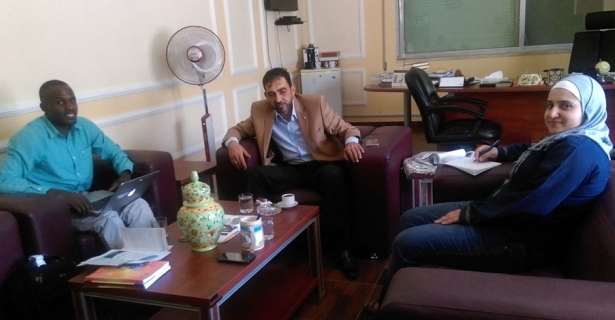This summer, I had the opportunity to travel to Jordan for my capstone research. This was made possible with financial support from Tufts University Institute of Global Leadership, and The Fletcher School Office of the Associate Dean. My study focuses on understanding the circumstances in which civil society organizations operate. It specifically investigated the successes and challenges encountered by civil society organizations; as well as the adaptive strategies used to counter these challenges. Studying the effects of the Arab Spring on pro-democracy civil society organizations in the Middle East and Africa gives a new dimension of understanding the Arab Spring but more so, how such events shape democratization across borders. While this study will not exhaust this topic, it will be a basis for further studies. Besides, due to my personal experience with civil society activism in Africa, and academic study in Research as well as Democratization in the Middle East and Africa, I believe this research is not only timely, but it is strategic as it’s findings will contribute towards addressing the changing political dynamics in the Middle East and Africa.
Through qualitative interviews, I met and talked to activists representing various civil society organizations in Jordan. My hope is that the challenges encountered by civil society will be reliable indicators for estimating the impact of the 2011 Arab spring in the Middle East and Africa. I conducted two to three interviews every day with the exception of Friday. From Jordan, I am heading to Uganda to conduct similar interviews since this is a comparative study between the two countries. But being my first time in Jordan, the process was not without interesting moments.
With very limited knowledge of the Arabic language, I found myself in adventurous situations with Taxi drivers. Here is how it works, most taxi drivers pay little attention to street names but can get you places if you can tell them the landmarks close to your destination. So, I stand by the street, wave for a taxi, and eventually one pulls up. The driver signals that I get in and I do. He is then speaking in Arabic, and I know enough to hear that he is asking for my destination. I provide my destination address. I can’t understand the next question but it is clear he doesn’t know my destination address. I say the address again in Arabic, hoping that will help. He still doesn’t get it. Meanwhile, we are blocking traffic and the cars behind us are hooting. I then pick up my phone and call the person I’m scheduled to meet. I ask them to provide the Taxi driver with directions. After the phone conversation, I see a smile on the driver’s face and with it, is the phrase, “no problem!” (Translation; I know the place). At that point, I start the GPS on my phone and the taxi takes the exact same route as indicated on the GPS. The entire trip I am reading street names and every thing seems to add up. But hey! Things work differently and I appreciated going through that experience.
It is exactly the same in my country of origin Uganda but I guess the difference is the language. My sincere appreciation to all my Jordanian contacts that made my interviews possible and the lady that helped with translation in one of the interviews. Thank you to the Institute of Global Leadership at Tufts University for supporting my study and I look forward to more interviews in Uganda. I am learning a lot!

